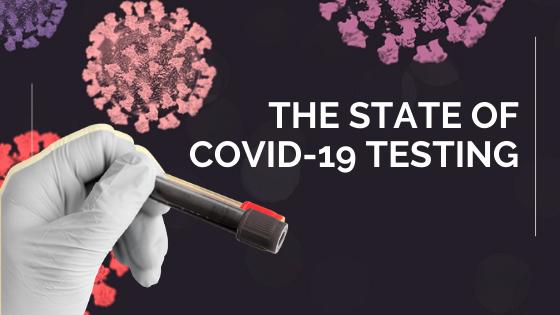01 Apr 2020 - {{hitsCtrl.values.hits}}
By Yoshitha Perera
The global number of COVID-19 cases have topped 858,916 after just three months into 2020, and currently countries are on mission to do everything they can when it comes to the expansion of rapid testing facilities within their states. With a major public health emergency in Sri Lanka, health authorities are facing an urgent need to rapidly increase and expand the testing facilities available for our citizens.

What are the current testing facilities?
In Sri Lanka, the government set up several virology laboratories at state hospitals including the Medical Research Institute in Colombo to conduct the Polymerase Chain Reaction (PCR) test. However, speaking to the Daily Mirror, the Government Medical Officers Association (GMOA) highlighted that the current testing facilities in the country provides only the bare minimum of the testing requirement in order to manage the COVID-19 pandemic in the country.
“Currently, Sri Lanka is only testing all the samples taken by the COVID-19 positive patients in these laboratories. But it is not enough. Since there is no proper medication for the virus, the county has to keep testing all the COVID-19 positive patients. To perform this task there is a lack of resources in the country,” GMOA Secretary Dr. Haritha Aluthge told Daily Mirror.
What can we do to improve the testing facilities?
GMOA highlighted that by increasing social distancing practices over 80% and suspending the current process of relaxing curfews from time to time; citizens can also participate in the testing process, to combat COVID-19.
“According to a study conducted by researchers in Western Australia, a country has to increase social distancing up to more than 70% to flatten the curve and to perform this task, Sri Lankan citizens have to understand their responsibility right now,” Dr. Aluthge said.
He said that only the areas where the government had completely locked down are currently maintaining 90% of social distancing which can be identified as a good point but as a whole, the country is currently practicing only 60% of social distancing.
“To combat the virus and to get positive outcomes during the sample testing, people have to maintain social distancing properly. It is necessary for at least 80% of the total population to remain indoors to get a positive outcome within this month,” he stressed.
Dr. Aluthge noted that relaxing curfew from time to time when people would gather to fulfill their essential needs, is a deterrent to the overall situation. “Only 50% of social distancing was observed in the areas where the curfew was relaxed time to time and that is clearly dangerous,” he said.
Mere social distancing is not enough
According to the Covid-19 stages identified by the World Health Organization Sri Lanka is currently in stage 3 where clusters are being identified. The clusters can be identified in a further two stages, the Home Cluster (3A) and the Village Cluster (3B).
“To avoid progressing into to stage 3B, just social distancing is not enough. The authorities have to perform contact tracing and case isolations in order to stop progressing into a stage 3B situation,” Dr. Althuge informed Daily Mirror.
Contact tracing is identified as an attacking mode and by continuing this mode the tri-forces in the country have been able to identify more than 20,000 people who had to undergo self-quarantine immediately, he said.
Dr. Aluthge further said that only 20% of the population is currently presenting with complications related to COVID-19 while the remaining 80% is showing mild symptoms or not showing any symptom, which he noted was an extremely threatening development linked with the disease.
“To achieve any positive result within this month, case isolations too have to be performed by our health officials and they have to continue testing these patients. Therefore the testing facilities in the country must be developed,” he highlighted.
What will happen if social responsibility and proper testing are not implemented?
The GMOA warns that there will be a possible peak in the number of COVID-19 patients reported in the country at the end of April, adding that authorities have to be prepared for it. Dr. Haritha Aluthge said that the most of our hospitals are not capable of handling such a high number of COVID-19 cases.
“Specialisation systems within the Health Care sector should be developed by the government immediately. Currently, the Kothalawala Defense University Teaching Hospital is better equipped to operate a specialized treatment facility for Covid-19 in the country. We urge the government to provide the hospital to perform these testing facilities,” Dr. Aluthge said.
“There is also a risk to the healthcare workers when COVID-19 suspected patients are being admitting to the normal wards. Some of them have known to be hiding their actual symptoms. During such a situation, the particular health staff in the hospital would not be wearing the Covid-19 designated Personal Protective Equipments (PPE) while testing patients admitted in regular wards. Due to this matter if such patients test positive for COVID-19, the whole staff has to undergo quarantine for 14 days. This is a great risk in managing the health care system of our country,” he cautioned.
01 Nov 2024 41 minute ago
01 Nov 2024 1 hours ago
01 Nov 2024 2 hours ago
01 Nov 2024 2 hours ago
01 Nov 2024 3 hours ago